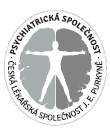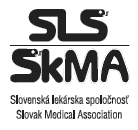Česká a slovenská psychiatrie

Časopis
Psychiatrické společnosti ČLS JEP
a Psychiatrickej spoločnosti SLS
souborný článek / review article
SCHIZOFRENIE U MENTÁLNĚ RETARDOVANÝCH PACIENTŮ, DIAGNOSTICKÉ ROZVAHY A PRAKTICKÉ ZKUŠENOSTI
SCHIZOPHRENIA IN MENTALLY RETARDED PATIENTS, DIAGNOSTIC CONSIDERATION AND PRACTICAL EXPERIENCE
Pavlíková K.
Psychiatrické oddělení Fakultní nemocnice Ostrava,
prim. MUDr. J. Svobodová, Ph.D.
prim. MUDr. J. Svobodová, Ph.D.
SOUHRN
Během práce s mentálně retardovanými pacienty se můžeme setkat s poukazovanou celou řadou náhle změněného chování. Poruchy chování jsou součásti samotné diagnózy, přesto však mohou být projevem závažnějšího přidruženého duševního onemocnění. Jednou z diagnostických rozvah je i podezření na psychotickou poruchu. Diagnostika je o to složitější, čím je hloubka mentálního postižení větší. V důsledku problematické komunikace musíme mnohé informace čerpat nejen ze subjektivních prožitků pacienta, ale zvláště z dokumentace, pozorováním či pohovorem s příbuznými. Správná diagnostika nám pomůže lépe sladit efektivní léčebný postup a nastavení účinné medikace.
Klíčová slova: mentální retardace, psychotické stavy, schizofrenie, poruchy chování, epilepsie, komorbidita, duševní poruchy.
SUMMARY
Pavlíková K.: Schizophrenia in Mentally Retarded Patients, Diagnostic Consideration and Practical Experience
The clinical work with mentally retarded patients may expose a whole range of suddenly altered behavior. Although behavioral disorders are a part of the diagnosis itself; they may be a manifestation of more serious associated illnesses, such as the suspicion of a psychotic disorder that can require a further in-depth diagnostic investigation. With the degree of mental retardation, the requirements for the diagnostic procedure substantially increase, due to the problems in communication with the patient. In this respect, we are forced to gather more information not only from the subjective experience of the patient but also mainly from the patient's record, by observation or an interview with the relatives. A correct diagnostics will determine an accurate diagnosis with better harmonization of medication, resulting in effective treatment.
Key words: mental retardation, psychotic conditions, schizophrenia, behavioral disorders, epilepsy, comorbidities, mental disorders.





